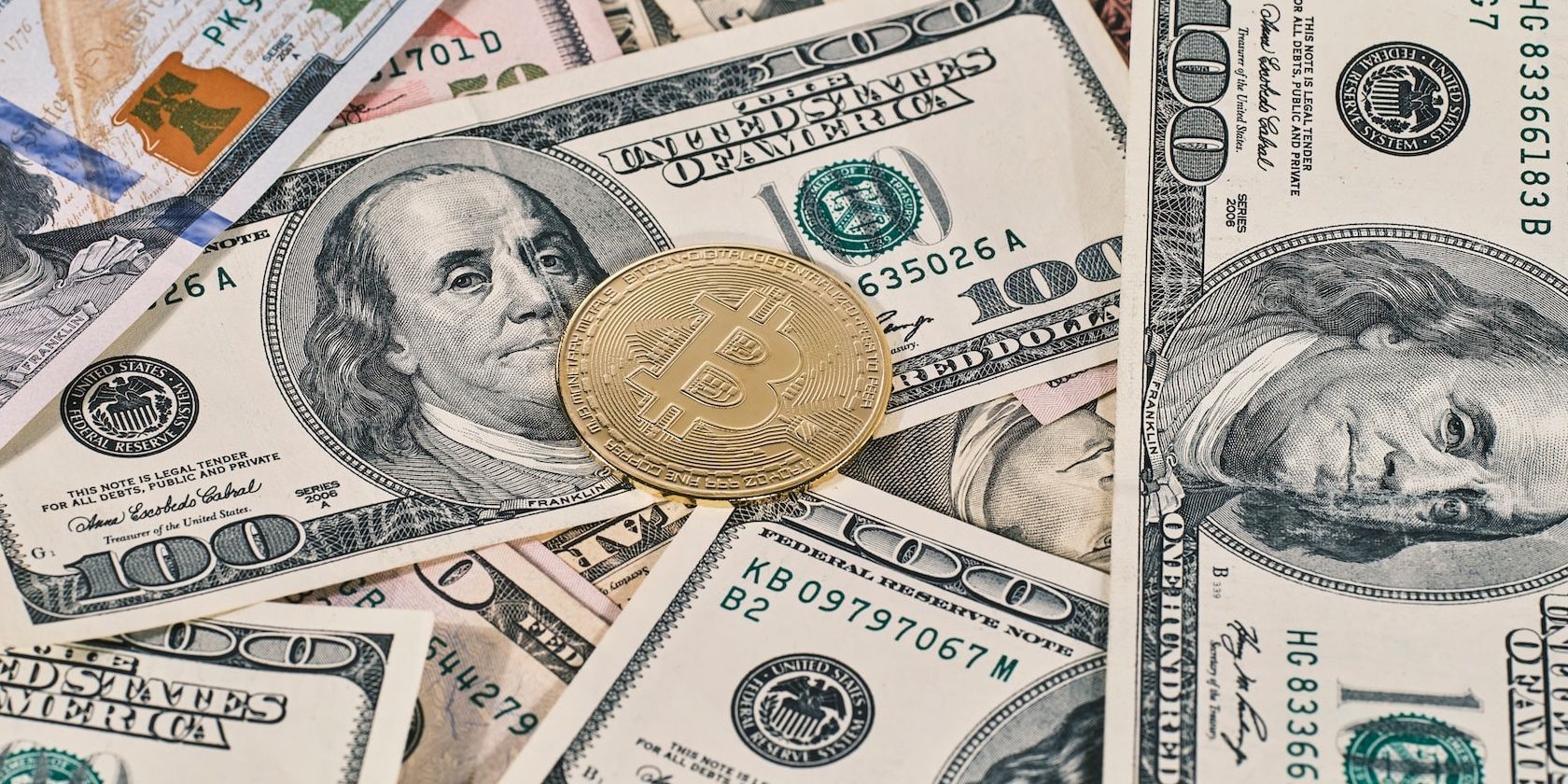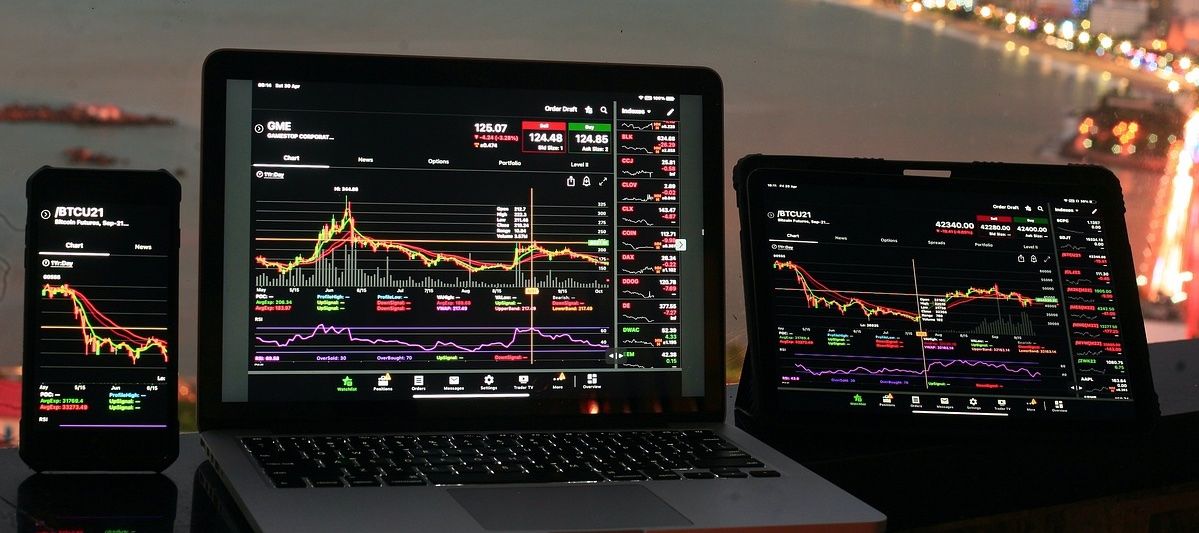The forex, cryptocurrency, and stock markets are large financial markets with numerous parallels and differences. They benefit new and seasoned traders by allowing them to apply their skills to profit in various ways. If you've ever wondered what it's like to trade in these markets and how to pick the best one, we've got you covered.
The Forex Market
Forex (FX) means foreign exchange. It involves exchanging one currency for another to profit from their differences in value. With a daily traded volume of $6.6 trillion, the FX market is the largest financial market in the world in terms of volume and liquidity. When you trade forex, you exchange the value of one country's currency for another. For example, you trade currencies like the United States dollar, Great British pound, Japanese yen, South African rand, Canadian dollar, euros, and many more.
The big players in the forex market include the large commercial banks that contribute 80% of the money traded in the market, the central banks, which are often the liquidity providers since they are the ones providing and regulating the currencies traded, the government, institutional traders, brokers, and retail traders.
The forex market is regulated in different jurisdictions around the world. The regulators are government authorities that oversee trading activities. Examples of these regulators are the Financial Conduct Authority (FCA) in the United Kingdom, the Securities Exchange Commission in the United States, and the Cyprus Securities and Exchange Commission (CySEC) in Europe. Every country or jurisdiction has a major regulator that ensures the smooth running of financial activities, including foreign exchange activities.
The Cryptocurrency Market
Cryptocurrency is a decentralized virtual currency secured using cryptography and used as a medium of exchange. When trading cryptocurrencies, you trade assets like Bitcoin, Ether, Solana, Litecoin, and many other native tokens of different blockchain networks.
The prominent players in the crypto market are the large fund investors, institutions or individuals, social media/crypto influencers, and whoever can significantly influence the market's sentiment. The other players include crypto exchanges and retail traders.
The crypto market is subject to less regulatory oversight and protection than traditional markets like stock and forex. However, cryptocurrencies are built using blockchain technology; the transactions are recorded into blocks through a relatively complex and technical process that makes it hard to hack or tamper with.
The Stock Exchange Market
Stocks, also known as shares, are issued by companies on the stock exchange market to raise funds for their operations. This way, companies sell ownership stakes to investors. Shares are typically traded on stock exchanges, where investors can purchase them.
The stock market consists of several public companies listed on different exchanges. Some of the most popular stock exchanges in the world are the New York Stock Exchange (United States), Nasdaq (United States), Euronext (Europe), Hong Kong Stock Exchange (Hong Kong), Shanghai Stock Exchange (China), London Stock Exchange (United States), and many more.
Just like the forex market, stock exchanges are regulated by government authorities in different jurisdictions around the world.
Forex vs. Crypto vs. Stocks: 5 Factors to Consider
Below are some factors you can consider when choosing the one that works best for you.
1. Market Hours
The forex market is open to retail traders from 5 pm EST on Sunday to 5 pm EST on Friday every week. Each trading day is divided into four trading sessions: New York, Tokyo, Sydney, and London, open from 8 am to 5 pm EST, 7 pm to 4 pm EST, 5 pm to 2 pm EST, and 3 am to 12 am EST, respectively. Every currency has a trading session in which it is most active. In the same way, different stock exchange markets have their own open periods, typically at certain hours on work days.
The most favorable trading hours for you may depend on the part of the world you are living in. If your preferred session or stock market opens at an odd hour of the day, then it may be impossible to trade consistently.
On the other hand, the cryptocurrency market is open 24 hours a day, every day of the week, and you can execute trades at any time, even on weekends. So if you have a full-time job or are busy, the crypto market could be your best option, especially for weekend trading.
Long-term traders may not need to worry about trading time or sessions since they won't have to check their charts often and won't need to spend long hours trading.
2. Regulation
Foreign exchange and stock markets have existed for a long time, and central authorities regulate them in different countries. Therefore, you should expect to see fewer fraudulent activities. Some regulators might be a little more lenient in their operations than others.
On the other hand, cryptocurrency activities are largely not controlled by any central authorities. To a great extent, the safety of your activities depends on how secure the crypto network is and the exchange's reputation. Cryptocurrencies and blockchains are difficult to hack, but cryptocurrency exchanges and cryptocurrency wallets are "easier" targets.
3. Blue-Chip Assets
Blue-chip assets are assets that have survived various bear markets and have the reputation of being valuable, stable, and established.
The forex market has at least existed since the beginning of modern exchanges, which date back over 100 years. Some stocks and stock exchanges have also existed for over 100 years. Bitcoin, the first cryptocurrency, was released in 2009. Thus, the oldest cryptocurrency is less than 15 years old.
If you want to invest in assets with a track record of surviving harsh market conditions, the forex and stock markets might be better options since the crypto market is less than 20 years old. However, in relation to other cryptocurrencies, Bitcoin and Ethereum have survived various bear markets within their respective years of existence and can also be regarded as blue-chip cryptocurrencies.
4. Trading Skills
You must be well-informed to succeed in the forex, crypto, and stock markets. You must understand technical analysis and be abreast of important news and other fundamental factors regarding your markets of interest.
We cannot understate the importance of getting the necessary education to trade in these markets. Trading is not easy; it requires patience, hard work, skills, and mastering your psychology.
5. Volatility
The crypto market is inherently the most volatile of the three, making it prone to wild market swings. On the other hand, the stock market is the most stable, while the forex market sits somewhere in between.
The crypto market may be a good choice if you want to invest in assets with constantly moving prices since you will get more trading opportunities. The stock market is relatively less volatile than the other markets and offers less trading leverage.
As much as market volatility opens you up to more potential profit, it can also make you lose a lot of money quickly. Thus, the more volatile an asset, the riskier it is to trade.
Paper Trading Helps
The three markets offer great possibilities but are, at the same time, risky. Therefore, you must take your time to master whatever your market of choice is. Trading platforms offer paper trading accounts where you can trade virtual money until you are comfortable with your results. That way, you won't have to risk your money in a market you haven't tried trading in.
The information on this website does not constitute financial advice, investment advice, or trading advice, and should not be considered as such. MakeUseOf does not advise on any trading or investing matters and does not advise that any particular cryptocurrency should be bought or sold. Always conduct your own due diligence and consult a licensed financial adviser for investment advice.



